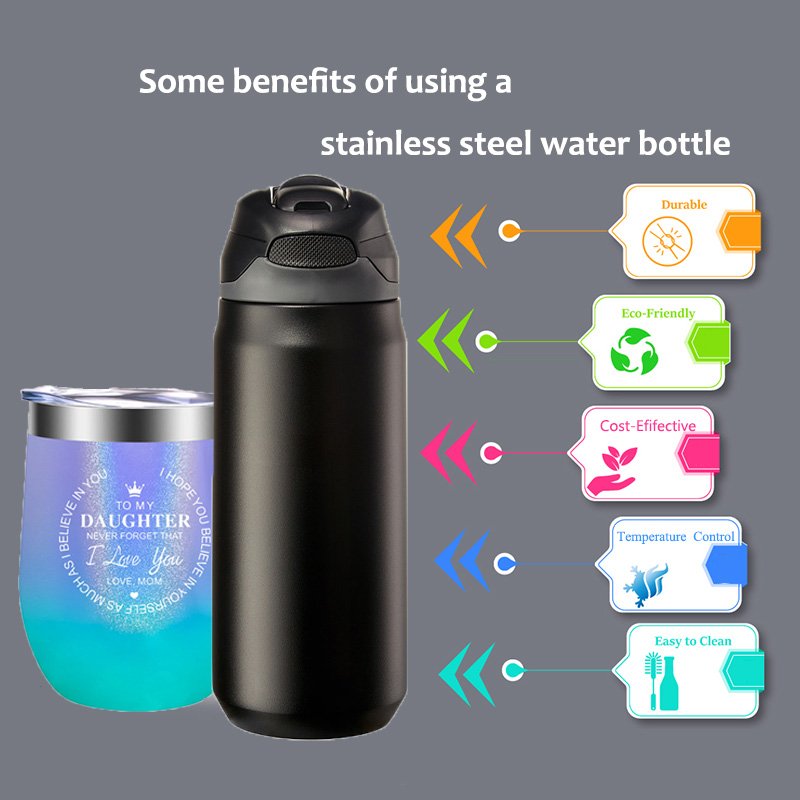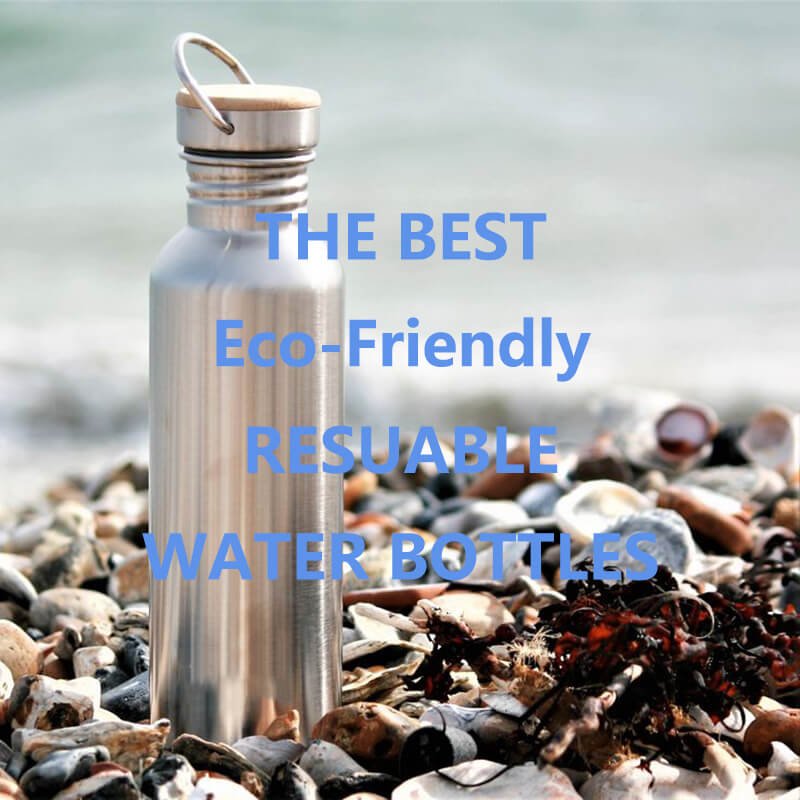Introduction to Eco-Friendly Glass Water Bottles
In recent years, the encroaching presence of plastic pollution has prompted an urgent call for sustainable alternatives in daily products. Among these alternatives, eco-friendly glass water bottles have emerged as a front-runner in promoting both environmental responsibility and personal health. The importance of integrating glass water bottles into our lives cannot be overstated; they contribute significantly to reducing the reliance on single-use plastic, which poses considerable risks to our ecosystems.
One of the foremost advantages of glass over plastic lies in its safety profile. Glass is inherently free from harmful chemicals, such as bisphenol A (BPA), which are often found in certain types of plastic. This makes glass a preferable choice for consumers concerned about the health implications of their beverage containers. Furthermore, glass bottles are not only safe but are also known for their durability, able to withstand repeated use without degrading or leaching harmful substances.
Another compelling benefit of glass water bottles is their recyclability. Glass can be recycled endlessly without losing quality or purity, making it a crucial element in the circular economy aimed at minimizing waste. In contrast, plastic typically breaks down after a few recycling cycles, leading to an accumulation of waste. The increasing consumer awareness surrounding environmental sustainability has driven a significant demand for eco-friendly products, including glass water bottles. Today, consumers are more inclined to support businesses that prioritize sustainable practices, recognizing that their purchasing choices can contribute to a larger environmental impact.
This shift in consumer behavior not only influences individual decisions but also propels businesses toward adopting sustainable solutions. As eco-friendly glass water bottles become more accessible, there is a clear movement towards responsible consumption, encouraging both companies and consumers to participate in a more sustainable future for modern living.
The Benefits of Choosing Glass Water Bottles
The transition to glass water bottles represents a significant shift towards healthier and more sustainable living. One of the most compelling advantages of glass is its non-toxic nature. Unlike plastic bottles, which can leach harmful chemicals into beverages, glass poses no such risk. This characteristic makes glass not only a safer choice for personal health but also an eco-friendly option that aligns with growing consumer awareness regarding toxicity.
In addition to health benefits, glass water bottles offer a distinct aesthetic appeal. Available in various designs, colors, and shapes, they can serve as fashionable accessories while promoting a sustainable lifestyle. Many individuals find that the elegant appearance of glass bottles enhances their daily routines, encouraging regular hydration. The clarity of glass also allows users to see their beverages, providing visual satisfaction that is often unachievable with opaque materials.
Moreover, investing in glass water bottles can lead to substantial long-term cost savings. Although the initial purchase price may be higher than that of plastic alternatives, the durability and reusability of glass mean that they do not need to be replaced frequently. Individuals who choose glass over other materials often find that the savings on single-use plastic bottles accumulate over time, making glass bottle options a more economical choice.
Finally, by choosing glass over plastic, consumers play a crucial role in fostering a healthier environment. The use of reusable glass products lowers the demand for single-use plastics, which are known to contribute significantly to environmental pollution. This conscientious choice aligns with the broader trend towards sustainable living, as many consumers today are increasingly drawn to eco-friendly options that reflect their values and concern for the planet.
The User Experience: Design and Functionality
When it comes to eco-friendly glass water bottles, user experience is a pivotal aspect that influences consumer satisfaction. The design of these bottles plays a significant role in their appeal, ensuring that they align with the user’s lifestyle while promoting sustainability. Ergonomics is a critical consideration in this context; the shape and size of a water bottle can dictate how comfortably it fits in the hand or a bag. Eco-friendly glass water bottles are increasingly designed with rounded bodies or contoured shapes to enhance grip and ease of use, while still remaining lightweight.
Easy maintenance is another vital factor that underpins usability. Many consumers favor glass bottles that are dishwasher-safe or can be easily cleaned by hand. This emphasis on ease of cleaning not only promotes hygienic practices but also encourages users to incorporate these sustainable products into their daily routine seamlessly. By integrating wider mouths or removable bases, manufacturers can enhance the overall cleaning experience, making it convenient for users to keep their bottles in optimal condition.
Portability is equally important, especially for individuals with active lifestyles. Eco-friendly glass water bottles often feature additional design elements such as collapsible silicone sleeves or carrying straps to make transportation easier. This attention to portability ensures that consumers can admire the environmental benefits of glass materials while enjoying the convenience of a travel-friendly design.
Furthermore, customization options are increasingly being offered by manufacturers to cater to the diverse preferences among consumers. Personalized designs or colors allow users to express their individuality while making eco-conscious choices. The intersection of sustainable manufacturing with functional design positions eco-friendly glass water bottles as a practical choice that does not compromise on style or convenience. By prioritizing user experience through innovative designs and smart functionality, suppliers reinforce the notion that adopting eco-friendly practices can enhance everyday living.
Why Partner with an Eco-Friendly Glass Water Bottles Supplier
In today’s consumer landscape, partnering with an eco-friendly glass water bottles supplier is not merely a trend but a necessary step toward aligning business practices with sustainability goals. A key reason for choosing a reliable supplier of eco-friendly products rests in the assurance of product quality. High-quality glass water bottles are not only durable but also free from harmful chemicals often found in plastics, making them a safe choice for consumers. By sourcing from a reputable supplier, businesses can confidently offer products that meet health standards and resonate well with environmentally-conscious customers.
Sustainable sourcing practices are another critical factor that underscores the importance of partnering with an eco-friendly supplier. Such suppliers typically prioritize environmentally responsible materials and manufacturing processes. This commitment ensures that the production of glass water bottles minimizes ecological impact, a concern shared by an increasing number of consumers. By collaborating with a supplier that shares these values, businesses can leverage sustainable practices in their supply chain, thus enhancing their overall sustainability efforts.
Customer service also plays a pivotal role in fostering a successful partnership. A dependable eco-friendly glass water bottles supplier should offer not only quality products but also expert guidance and support. Such a commitment enhances client satisfaction and helps businesses make informed decisions that align with their sustainability objectives. Moreover, a strong partnership can bolster a company’s brand image, positioning it as a leader in environmental stewardship. By meeting the expectations of socially responsible consumers, businesses can attract new clientele and build lasting customer loyalty.
Ultimately, partnering with an eco-friendly glass water bottles supplier facilitates not just an ethical approach to consumption, but also affirms a brand’s commitment to sustainability. This, in turn, contributes positively to both the environment and the business’s bottom line.



